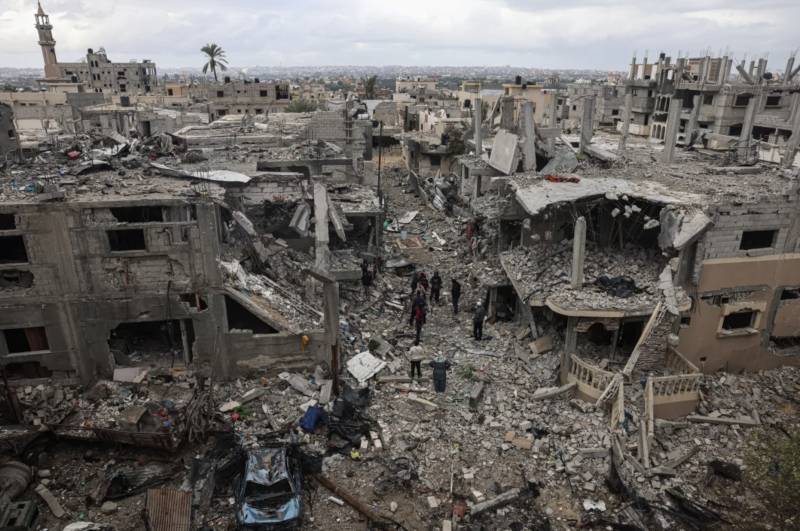
“Sadly, it’s much easier to create a desert than a forest”—James Lovelock
Ask self-made people, and you will get to know about the struggles, hardships, heartbreaks that they were forced to undergo before achieving their life goals. Check the construction of a house and note the intense planning and subsequent brick by brick layout that is undertaken before the last nail is hammered in and keys handed over to the jubilant owner, that too after a lapse of substantial time.
Setting up an orchard also requires planting trees that bear fruit if meticulously taken care of, again, over a good number of years. Cities and towns too are built with a lot of hard work spanning over decades making them habitable for humans. Countries build crucial infrastructure constituting roads, railway lines, bridges, canals, ports, etc. in an attempt to connect cities and creating an accessible network for transportation of people and goods.
On a much smaller scale, another interesting example of building can be that of a 2000 to 5000 pieces jigsaw puzzle that may take several hours if not several days to complete. Identifying and joining each fragment of the main picture correctly, thus completing the entire puzzle gives a perplexing boost to one’s creativity. Again, the work of artists, sculptors, potters, etc. requires a lot of hard work and skill. Rarely does one come across an artisan who deliberately ruins a masterpiece just for the sake of fun.
Farmers spend hours in tilling the soil of an unused field, toil diligently to nurture the seeds that are strewn over the land to allow them to grow and mature into a harvest that changes the very nature of the terrain. They proudly behold their fruits of labor swaying in the gentle breeze, but a small spark from a lit matchstick or a carelessly tossed cigarette can raise to ground the entire crop within a matter of a few moments.
In a nutshell, one can say with certainty that compared to destruction, creating and building is far more tedious, time consuming and of course, expensive yet we are often confronted with a situation where vandalism takes place that can damage or destroy both private and public properties.
Although human beings possess exceptional qualities, there are many who take pride and pleasure in behaving in a sadistic manner. This is reflected in their vandalistic acts that are mostly undertaken for the purpose of deriving sinister pleasure, or is it because they try to exercise control and dominate others, inciting fear?
In today’s world, physical destruction may not be the only way out as potential sadists engage in trolling on the internet to appear to stand on higher moral ground, but in doing so, completely damage people who may have painstakingly established their image before others. Those who do not have the courage to do so, vent out by playing violent video games, especially designed to satisfy their urge to kill and destroy.
Despite knowing the extremely negative repercussions of releasing a nuclear warhead, governments around the globe continue to invest billions in researching and improving this technology only to uphold their dominance in the political world, while subjugating weaker nations. Just as a low intellect bully on the school playground keeps the intelligent under his command, powerful countries tend to exert their influence through their more powerful destructive armaments.
The Earth has become more like a laboratory in the hands of a few who are bent upon converting this beautiful planet into a barren desert since this is something that is achievable because peace, prosperity and humanism are becoming goals that seem totally out of grasp. Besides causing ecological damage, this nuclear and conventional arms race is just accelerating the pace towards extermination with easy access to deadly instruments.
On a much smaller scale, one comes across myriads of examples where ordinary folks are killed merely for the purpose of claiming hegemony over a piece of land. The land mafia in our country has no hesitation in evicting or even taking lives of persons settled for ages in a particular locality to clear up the area to establish a housing society. In reaction what happens is that the affected ones or their kin harbor this insult and sooner or later, try to avenge this disrespect thus transferring malice and hatred down to generations.
During tumultuous demonstrations, when crowds become violent, one can witness the way properties are wrecked, public transport set on fire, important installations damaged and in that frenzy fail to realize that these are essential facilities that are meant for the perpetrators too. If a hospital is made dysfunctional then how would they or their loved ones seek medical assistance if needed?
This is a recipe for turbulence as a constant with a variety of revengeful and destructive tactics that have the capability to cause chaos. Hostility and aggression are no answers to gaining mental peace. In fact, these are traits that lead up to an undeniable state of unrest, that if becomes persistent, would cause fertile lands to become infertile. Bustling regions like Aleppo, Ukraine, Iraq, Yemen and now Gaza have been razed to the ground and if this disease is not cured, its germs can spread and affect even those who appear to be content and oblivious to the surrounding web of destruction.
Death is inevitable, but this does not mean that one should not live life to the fullest or deny this opportunity to others. Live and let live should be the motto, which includes animals and other life forms as well. Margaret J. Wheatley, an American writer says:

